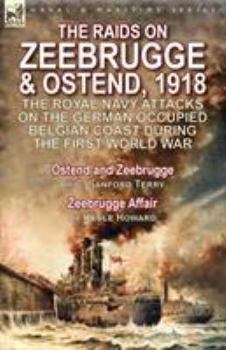The Raids on Zeebrugge & Ostend 1918: The Royal Navy Attacks on the German Occupied Belgian Coast During the First World War-Ostend and Zeebrugge by C
Select Format
Select Condition 
Book Overview
The 1918 amphibious raids on the Belgian coast
After three years of grinding attrition, the First World War on the Western Front remained in a stalemate with the German and Allied armies stuck in opposing trenches divided by a barbed-wire fringed, cratered no-man's-land. When the United States of America entered the contest there could be little doubt of an ultimate allied victory. Irrespective of the introduction of fresh fighting men, war materiel and other supplies were already streaming across the Atlantic Ocean to further the allied cause. To prevent the arrival of these supplies and to disrupt shipping in general the Germans had developed a highly effective submarine counter-measure in the form of the U-Boat. These submarines were operating from bases on the western continental coast notably at Zeebrugge in Belgium. To neutralise the U-Boats the Royal Navy devised a daring raid on those bases, which if successful would not only deny the U-Boats access to safe berths, but prevent those which were not already at sea from exiting to the ocean to prosecute their war. The objective of these raids was to neutralise the greatest maritime threat in order to speed victory on the field of battle The raid was imaginative, audacious and executed with incredible courage. Perhaps predictably, however, all did not go according to plan. This book contains two riveting accounts describing that famous raid and includes diagrams and photographs.
Leonaur editions are newly typeset and are not facsimiles; each title is available in softcover and hardback with dustjacket.
Related Subjects
History




